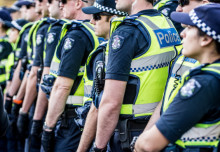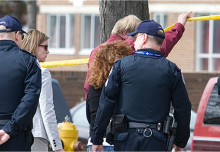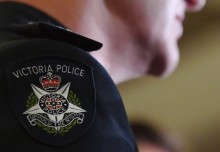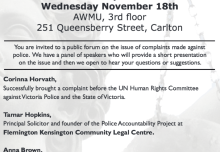Monday 12 August 2019

Revelations in Victoria’s Coroners Court today have highlighted systemic problems with police-contact death investigations in Victoria.
The Coronial Inquest into the death of Yorta Yorta woman Tanya Day has heard concerns regarding the independence of the police investigator assigned to investigate on behalf of the Coroner.
This highlights a systemic problem with police-contact death investigations in Victoria.
According to Anthony Kelly, Executive Officer of the Flemington Kensington Community Legal Centre, “The concerns raised by Tanya Day’s family today echo so many other bereaved families seeking the truth through the coronial process. If families lose trust in the police who are tasked by the Coroner to investigate other police, it undermines faith in the entire coronial inquest.”
“Police should not be investigating police – it’s as simple as that. If somebody tragically dies in police custody, as happened to Ms Day, it’s especially important that the investigation into what happened is independent of police.” said Mr Kelly.
The coronial system in Victoria plays an important role in the independent investigation of deaths for the purpose of finding their causes and how to prevent further deaths.
Unfortunately, when a coronial investigation implicates police, or examines the practices or policies of police, engaging a police officer to carry out the investigation on behalf of the Coroner undermines this key objective of the coronial system.
Community distrust in the investigation carried out by the Victorian police member assigned to investigate the death frequently arises, diminishing the credibility of the coronial process in the eyes of the community.
A conflict of interest exists for police officers investigating their colleagues or examining police procedures or systems. They must deal with the competing pressures of avoiding scandal/poor press or legal issues, versus uncovering the circumstances that may have contributed to a civilian’s death. Numerous Coroners around Australia and the Victorian Parliament’s Law Reform Committee have raised issues with police investigations in findings.
It is often not possible to cure deficiencies in an investigation once it has been carried out, including the loss of key evidence. Police, including homicide investigators, receive no additional or specialist training in deaths in custody investigations and often rely upon assumed knowledge and practices.
Even when inquests exonerate officers or police procedures, the perception of bias or conflicts of interest can cast doubt over the credibility of coronial findings.
International best practice and Victoria’s obligations under international human rights law, require that police contact deaths be independently investigated.
“Investigations must be practically and institutionally independent, effective and multi-disciplinary. They must also allow for the supported and meaningful participation of families,” said Mr Kelly.
Deaths associated with police contact could be investigated for the Coroner by specialist, multi-disciplinary teams employed by an independent body which meets the human rights benchmarks required under Victorian and International law – either by the Coroner’s Court or IBAC.
The provision of ‘oversight’, even by an independent body, does not meet this requirement.
“Victoria should seize the opportunity to learn from the models around the world that are working toward meeting human rights benchmarks in the investigation of police contact deaths.” Mr. Kelly said.
An independent multi-disciplinary team with relevant expertise including for example, critical incident mental health specialists, medical experts and scientists, embedded within the Coroner’s Court or within a new Police misconduct Division within IBAC would help cultivate practical independence in death investigations.
This Briefing Paper (PDF) by the centre’s Police Accountability Project sets out best practice standards for investigating deaths that involve police.
The Flemington Kensington Community Legal Centre has many years of experience working with families whose loved ones have been killed by police or during police contact.
“In our view, the public interest demands that both allegations of serious injury and death after contact with police, be independently investigated. We know that this is broadly supported by the Victorian community.” Mr. Kelly added.
A landmark Parliamentary Inquiry into Victoria’s police complaints system last year recommended that the Victorian Government establish a Police Corruption and Misconduct Division in IBAC to ensure that it can independently and effectively investigate complaints and disclosures about Victoria Police.
The concerns raised today provide yet another reason why the Victorian Government must commit to carrying out these recommendations.
Media & Resources:
‘Police shouldn’t be investigating police’: family anger over death in custody inquest, Calla Wahlquist, Guardian Australia, 12 August 2019
Coroner raises questions over investigating officer’s perceived lack of independence in case of Aboriginal woman Tanya Day…
Coroner denies request by Tanya Day’s family to remove police investigator from case, Sarah Curnow, ABC Investigations and Elias Clure, ABC News, 12 August 2019.
The coroner presiding over the inquest into the death in police custody of Yorta Yorta woman Tanya Day has refused a request from Ms Day’s family to remove an investigator from the case.
An Alternative model: Independent Police Conduct Authority of New Zealand
In New Zealand, police contact deaths are investigated by the Independent Police Conduct Authority of New Zealand which is institutionally separate from New Zealand Police. It utilises multi-disciplinary teams to carry out investigations that includes some ex-police investigators from largely overseas jurisdictions (that report to non-police managers).
A ‘vital need’ – Victorian Parliament’s Law Reform Committee
The independent model of coronial investigations was discussed in the Final Report by the Victorian Parliament’s Law Reform Committee on the Coroners Act 1985.
The Committee stated that it there was a “vital need” for a Coroner to be able to appoint an independent person to lead the investigations on the Coroner’s behalf in police-related deaths “to ensure that an independent investigation takes place. It is equally important that the families of persons who have died have confidence in the investigation process. This can only be achieved by the Coroner’s Office being and being seen to be independent of the police.”
Effective, Transparent, Accountable: An independent system to investigate police-related deaths in Victoria,
In June 2011 a report was published by the Federation of Community Legal Centres (Victoria), Human Rights Law Centre, Darebin Community Legal Centre and the Flemington Kensington Community Legal Centre, which recommended that the State Governmentstrengthen and modernise our death investigation system by establishing and resourcing an independent agency to investigate police-related deaths in Victoria.
Police-related deaths can occur in a range of ways including police shootings, police pursuits and other deaths in police custody. There are on average over 16 police-related deaths every year in Victoria. Yet, there is no independent agency to investigate those deaths for the State Coroner. Victoria Police has traditionally been responsible for investigating police deaths.
That 17-page report is available here (PDF).
Report on Inquiry into the external oversight of police corruption and misconduct in Victoria
On 4 September 2018, the Independent Broad-Based Anti-Corruption Commission Parliamentary Committee (the “IBAC Committee”) tabled a report into its ‘Inquiry into the external oversight of police corruption and misconduct in Victoria’. The report contains a ground breaking set of 69 recommendations for police oversight in Victoria that pays careful attention to the experiences of vulnerable Victorians and explores international alternatives.
![]() Inquiry into the external oversight of police corruption and misconduct in Victoria4.55 MB
Inquiry into the external oversight of police corruption and misconduct in Victoria4.55 MB






